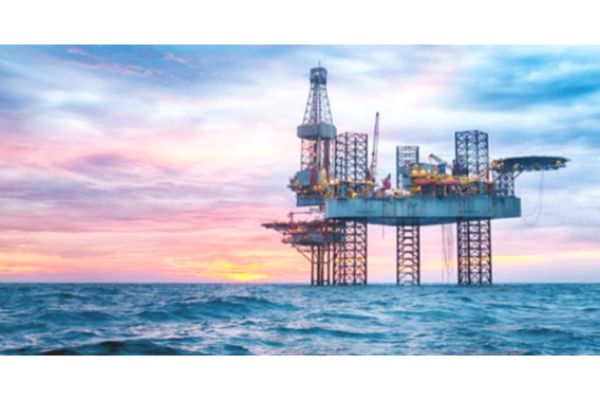Mega mergers in oil and gas on the cards
Published on: Saturday, September 19, 2020
By: Bernama
 Shareholder and green agenda activism is increasingly causing big oil to transition from fossil fuels with plans to expand renewable energy. – Bernamafoto
Shareholder and green agenda activism is increasingly causing big oil to transition from fossil fuels with plans to expand renewable energy. – Bernamafoto
Kuala Lumpur: The impact of the Covid-19 pandemic on the oil and gas industry (O&G), coupled with green agenda activism, could trigger an era of mega-mergers and consolidation among the super majors in the industry, AmInvestment Bank Bhd analyst Alex Goh said.He said shareholder and green agenda activism is increasingly causing big oil to transition from fossil fuels with plans to expand renewable energy by 6.4 times to 45 gigawatts (GW) with planned capital expenditure of US$200 billion (about RM828 billion) by 2030 from 7GW currently.
ADVERTISEMENT
“All majors, except for Exxon Mobil for now, have committed to achieve net-zero emissions by 2050 with plans to divest their overseas oil and gas investments. This could also trigger an era of mega-mergers and consolidation,” he said based on Rystad Energy’s 2020 APAC Virtual Annual Summit.
Rystad Energy is a Norway-based independent energy research and business intelligence company which provides data analytics and consultancy services to the o&g industry.
Malaysia’s Petroliam Nasional Bhd (Petronas) and Yinson Holdings Bhd have invested in solar.
The shift towards renewable energy has already been underway over the past three years with Petronas operating 448 megawatts (MW) of solar capacity in India and Southeast Asia and presently developing another 212MW.
ADVERTISEMENT
In Malaysia, Petronas is operating and developing 50MW of solar capacity, part of that to supply to 15 Tesco stores.
Amongst local service providers, only Yinson has taken the plunge by investing US$30 million (RM124 million) for a 95 per cent equity stake in a Rising Son Energy, which has a 160MW solar farm in Bhadla Solar Park Phase II, Rajasthan, India.
ADVERTISEMENT
He also said a recovery in upstream merger and acquisition deals is expected after a dearth of activity in first half 2020 with Chevron acquiring Nable Energy for US$13 billion (RM54 billion) in July this year.
A corporate action is likely with Exxon Mobil planning to divest assets in the UK, Germany, Australia, Indonesia, Vietnam and Malaysia. Repsol and Petrofac also plan to exit Malaysia, said Goh.
He also said that Rystad projects COVID-19 cases to spike by five times during the winter season in November-December as herd immunity will not be achieved.
As the realistic strategy is to wait for a vaccine that could be administered globally in eight–24 months, new technologies and adapted behaviour will continue to have a long-term structural impact on energy usage.
“Global daily oil demand is projected to decline by 18 million barrels in 2020 although global daily road traffic is showing signs of a pick-up in September, supported by China and other parts of Asia returning to near normality.”
He said Rystad warned of a second wave scenario which could cut an additional four million barrels/day production towards the end of the year.
“The viral pandemic will have a net negative impact on global oil demand until 2025, with an estimated 0.9 million barrels/day below pre-Covid 19 levels, after falling 24 million barrels in April this year.”
Meanwhile, US shale production, which dropped by 2.7 million barrels/day month-to-month in April 2020, could continue to decline under a US$40-45/barrel (RM165.50-RM186.20) price regime until growth begin to emerge in late 2021.
While Opec+ may recover to pre-Covid 19 levels by mid-2022, the output from the rest of the oil-producing nations, excluding the Middle East and the US, is expected to gradually slide in 2020–2025 due to lower field sanctioning in 2020-2021, said God.
Oil price could recover to a base-case scenario of US$75 (RM310) /barrel in late 2022 from the curtailment of global oil production as demand gradually improve, which could set the next down cycle in 2023-2024.
However, a more volatile upcycle could mean over US$90 (RM372.40) per barrel prices by mid-2022, followed by a more drastic collapse to US$30 (RM124.13) per barrel in 2024 from potential over investments.
AmInvestment maintains “overweight” call on the industry with buy calls on Bumi Armada Bhd, Dialog Group Bhd, Petronas Chemical Group Bhd, Petronas Gas Bhd, and Serba Dinamik Holdings Bhd, “sell” call on Sapura Energy Bhd and Velesto Energy Bhd and “hold” on MISC Bhd.
Goh said despite the ongoing volatility of crude oil prices, the down cycle may have reached a bottom with the worst experienced in April this year when Brent spot prices fell to a low of US$14 (RM58) barrel while futures inverted to an abnormal negative price due to lack of storage capacity.Stay up-to-date by following Daily Express’s Telegram channel.
Daily Express Malaysia










